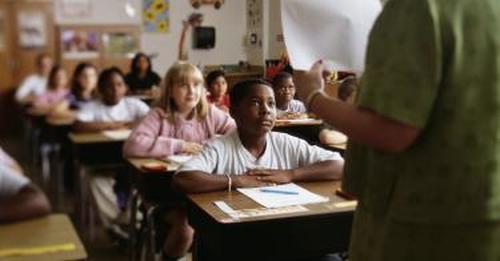Stop Gaslighting Parents On Critical Race Theory
Authored by Max Eden via RealClear Policy,
Proponents of Critical Race Theory are resorting to semantic gaslighting to defend a dogma that most Americans instinctively abhor.

Some pundits claim that CRT is exclusively a school of thought taught in legal academia. On her MSNBC show, Joy Reid claimed that “law school is really the only place it is taught. NBC has looked into everywhere.” Former Lincoln Project co-founder George Conway tweeted: “I don’t think critical legal studies should be taught in elementary schools, and I am ready to die on that hill[.]”
Some journalists, informed by other “experts,” contend that CRT is synonymous with “talking about racism.” NPR defined CRT as “teaching about the effects of racism”; the New York Times called it “classroom discussion of race, racism.” NBC News labeled it the “academic study of racism’s pervasive impact.”
These definitions are, of course, mutually exclusive. But they both serve to paint parents into a corner. If CRT is defined just as talking about racism, then parental objections to it must be rooted in racism. If CRT is defined just as a thesis discussed in law schools, then parental objections to it must be rooted in ignorance.
There’s no doubt that CRT has become a politicized term. Manhattan Institute senior fellow Chris Rufo forthrightly explained his strategy on this issue as follows: “The goal is to have the public read something crazy in the newspaper and immediately think ‘critical race theory.’ We have decodified the term and will recodify it to annex the entire range of cultural constructions that are unpopular with Americans.”
Liberal writer Freddie DeBoer has argued that CRT is now a “completely floating signifier.” Conservatives label a host of things they don’t like as CRT. Liberals, then, “feel compelled to defend CRT because conservatives attack it,” and defend it by claiming that it has nothing to do with any of the bad things conservatives say.
But words have meaning. Parents and policymakers should understand CRT not as conservatives or liberals define it, but as it defines itself. Here’s a definition from a 2001 book, Critical Race Theory: An Introduction by Richard Delgado and Jean Stefanic, widely credited as key architects of CRT:
The critical race theory (CRT) movement is a collection of activists and scholars interested in studying and transforming the relationship among race, racism, and power. The movement considers many of the same issues that conventional civil rights and ethnic studies discourses take up, but places them in a broader perspective that includes economics, history, context, group- and self-interest, and even feelings and the unconscious. Unlike traditional civil rights, which embraces incrementalism and step-by-step progress, critical race theory questions the very foundations of the liberal order, including equality theory, legal reasoning, Enlightenment rationalism, and neutral principles of constitutional law.
Although CRT began as a movement in the law, it has rapidly spread beyond that discipline. Today, many in the field of education consider themselves critical race theorists who use CRT’s ideas to understand issues of school discipline and hierarchy, tracking, controversies over curriculum and history, and IQ and achievement testing. Political scientists ponder voting strategies coined by critical race theorists. Ethnic studies courses often include a unit on critical race theory, and American studies departments teach material on critical white students developed by CRT writers. Unlike some academic disciplines, critical race theory contains an activist dimension. It not only tries to understand our social situation, but to change it. (Emphases added.)
Several points here deserve restatement: CRT defines itself in opposition to traditional civil rights and even Enlightenment rationalism. It defines itself not simply as a “Theory,” but also as movement of activists who seek to transform society. Many educators consider themselves to by Critical Race Theorists, and CRT ideology has had a profound impact on a wide range of education policy and pedagogical issues.
Anybody who tries to peddle the line that CRT is just “talking about racism” is either gaslighting or being gaslit themselves. And anyone who maintains that CRT is simply an academic theory discussed in law school, at best, is ignorant of what CRT really is.
By contrast, parent intuitions about CRT are spot on. Given that CRT informs so many aspects of education policy and pedagogy, the real crux of the issue for parents is, as Andrew Sullivan adroitly put it, “not teaching about critical race theory; it is teaching in critical race theory.” (Emphases in original.)
Public schools may be commonly assigning Critical Race Theorists like Kimberlé Crenshaw. But they have embraced a host of policies and practices that are rooted in Critical Race Theory. When parents hear terms like: “Equity,” “Anti-Racism,” “Cultural Competence,” “Culturally Responsive Education,” “Restorative Justice,” “Ethnic Studies,” “Equitable Math,” “Whiteness,” they would be fundamentally correct to go to a school board meeting and complain about Critical Race Theory. All of these practices are influenced by and have the same politicized purpose as CRT, which – to reiterate – defines itself not merely as a “theory” but also as an activist practice.
School boards that are implementing CRT-infused programming should not follow the media’s lead and gaslight parents by claiming that they are “not teaching CRT” on the grounds that they are not assigning academic journal articles by self-avowed Critical Race Theorists. Because the more parents look into it, the more may realize that although their schools might not assign canonical CRT academic journal article, they are teaching “in” CRT.
That will further heighten alienation and distrust between schools and families – alienation and distrust that is unavoidable so long as schools educate students through a “lens” intended to train children to oppose the foundations of our liberal order.
Max Eden is a research fellow at the American Enterprise Institute
https://ift.tt/363dHXj
from ZeroHedge News https://ift.tt/363dHXj
via IFTTT

0 comments
Post a Comment